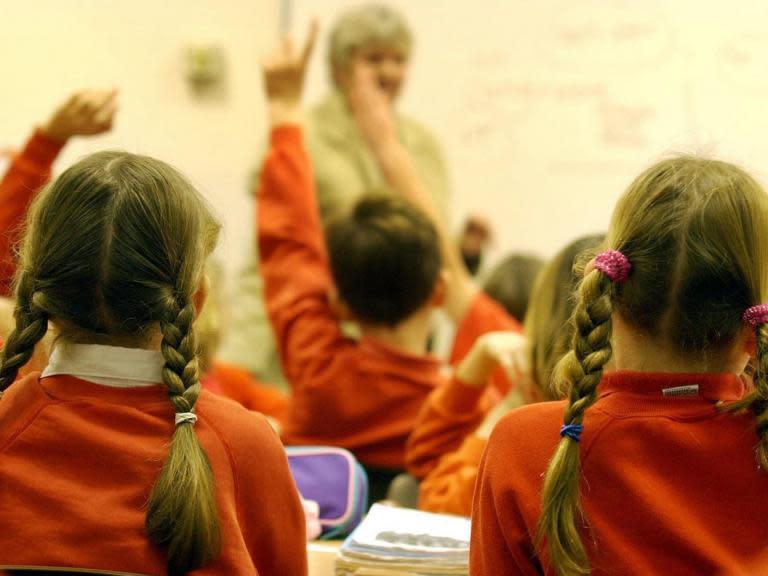Government ‘in denial’ over severe budget pressures facing schools, headteachers say
The Department for Education (DfE) is “in denial” and far removed from reality over the day-to-day budget pressures facing schools, the headteacher who leads an anti-funding cuts campaign has claimed.
Tension between headteachers and the government is growing as school leaders say the government rhetoric that "more money is going into schools than ever before" is “misleading”.
The latest DfE suggestion that savings can be found if schools review their printing, photocopying and energy deals has created anger among headteachers who say funding is in crisis.
As part of a response to concerns about budget pressures, the government said 68 schools in the South West will save a combined £254,000 after working together to secure a water supplier deal.
But headteacher Jules White, head of the Worth Less? campaign, said these schools will only save £3,735 each – which he argues will not go far enough.
“If the DfE feel that this will solve the financial crises that schools up and down the country are facing then they are sorely mistaken,” he said.
His comments came as around 1,000 headteachers from across England are set to march on Westminster on Friday to hand a letter to Philip Hammond calling for increased funding.
The protest, which is being organised by grassroots campaign Worth Less? rather than a union, comes amid concerns about larger class sizes, cuts to teaching staff and subjects, and a loss of support for special needs and pastoral services.
A report from the Institute for Fiscal Studies earlier this year showed that per pupil funding has been cut by 8 per cent since 2010 in real terms – due to rising pupil numbers, cuts to local authorities and sixth-form funding.
Mr White told The Independent: “The DfE appear to be in complete denial as to what we are all facing on the ground. There’s no need for heads to exaggerate the problem but what we do need is meaningful support and not the same tired old mantra about ‘record levels of school spending’.”
He added: “Twenty years ago no school complained of not being able to support children and families properly.” But now, headteachers have to cope with a rise in demand for mental health services and for special educational needs and disability provision amid cuts to external services, he said.
Mr White, headteacher of Tanbridge House School in West Sussex, said his school has had to share minimal hours for speech and language therapists with local schools despite huge demand. He added that there is limited capacity to support students with complex learning and social needs.
“Schools are expected to support and lead in all of these areas but we simply don’t have the capacity or resource to do so," he said. "I believe that it is these wide ranging factors that are contributing to such concerns amongst reasonably minded headteachers right across the country."
Alan Brookes, who has been headteacher of Fulston Manor School in Kent for more than 22 years, has recently had to cut back on school staff and the subjects on offer amid funding pressures.
“There is a hidden cost to this which is curriculum diversity. If you shrink the curriculum, then you shrink the life chances of the students going through the school," he told The Independent. "We are desperately clinging onto a broad curriculum in order to allow students to get a career in media and design."
Mr Brookes said that he has been trying to make savings – and recently he decided to relocate pupils and teachers from their classrooms so the school could rent out the space to generate income.
“We find it aggravating when the DfE say ‘have you thought about trying to save money’ because if you ask any head they will say ‘of course we have’,” he added.
Friday will be the first time that Mr Brookes has gone on a demonstration for 42 years.
“It just shows how desperate schools are becoming," he said. "Headteachers are not militant. Headteachers don’t rush off and go stomping around parliament. But enough is enough.”
A Department for Education spokesperson said: “There is more money going into schools than ever before, rising to a record £43.5bn by 2020 – 50 per cent more in real terms per pupil than in 2000. According to the OECD the UK is the third highest spender on education in the world, spending more per pupil than countries including Germany, Australia and Japan.
“Every school attracts more funding per pupil through the National Funding Formula, high needs funding has risen to over £6bn this year and the 3.5 per cent pay rise we announced for classroom teachers on the main pay range is backed by £508m government funding.”
Earlier this year, education secretary Damian Hinds acknowledged that cost pressures have made it “challenging” for headteachers to manage their budgets. Last month, the DfE launched cost-cutting advice for schools to help reduce non-staffing spending.
“We know that we are asking schools to do more, which is why we are helping them to reduce the £10bn spent each year on non-staffing costs, providing government-backed deals for things like printers and energy suppliers that are helping to save millions of pounds,” the DfE added.

 Yahoo News
Yahoo News 

